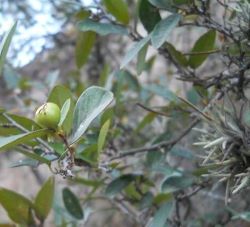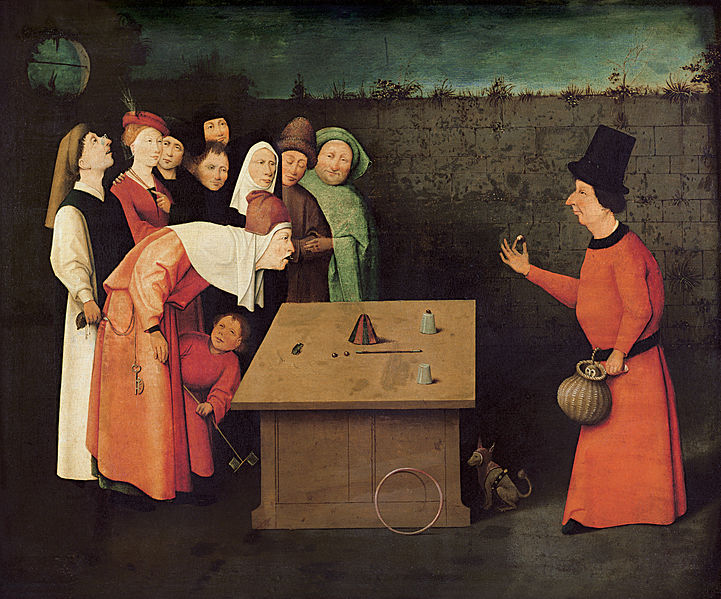What does “blanquillo” mean where? And why?
In Bolivia, Chile, and Peru “blanquillo” means “white peach”. In the Caribbean and Southern Corn (Southernmost portion of South America, traditionally including Uruguay, Chile, and Argentina), “blanquillo” means “white fish”, or it describes a tree in the euphorbiaceae (or spurge) family of flowering plants—a tree with whitish bark whose hard wood is used for posts. (So in some parts of Chile it means “white peach”, and other parts it means “white fish” and others a tree—not a peach tree, though?? Or what?)

In Guatemala, Honduras, and Mexico, “blanquillo” is sometimes used to signify a chicken egg. In Honduras, some areas of Mexico and in Chicano Spanish, “blanquillo” may also be used as a cruder/homier way to say “testicles”.
In English if “blanquillo” means anything at all, it refers to a marine fish in the percoid family Branchiostegidae (tilefish and whitefish are members of the family and it is sometimes used to describe those specific species).
But the Spanish Dictionary of the Real Academia de Espanola lists the following four definitions before it even gets to the regional ones mentioned above:
“saying of wheat, saying of bread, a specific trump in a specific card game, and a Chilean fish about thirty inches long and reddish brown on top but silver underneath.”
The final definition in this illustrious, Old World dictionary: “A disease in caged partridges manifested by milky-colored droppings.”
But what does the word really mean?
And why should “egg” mean “testicles”? Aren’t they like opposites?
“Blanquillo” is made up of “blanco” (white) and the diminutive suffice “illo”.
So: “little white one”
It’s easy to see how you might call a white peach or an egg a “little white one”. But tilefish and whitefish are not small fish.
Let’s turn now to a scholarly article by David L. Gold: “The Origin of Chicano Spanish blanquillo ‘testicle’ (On how Emulated Dyosemy Can Defeat the Purpose of a Euphemism)”. In this work—celebrated by some, largely overlooked by many—Gold explains that “blanquillo” for “egg” came about out of politeness: with “juevos” taking on the vulgar meaning “testicles” in addition to the standard meaning “chicken eggs”, some began to feel “juevos” was just too indelicate to say out loud. Hence the work-around: “blanquillo”.
But then—!etymological irony of etymological ironies!—some jerks started using “blanquillo” to mean “testicles”, thus defeating the whole purpose of “blanquillo”. Why not just call chicken eggs “testiculos”, and be done with it?
Per Gold, similar problems have popped up in the Polish and non-Israeli Hebrew words for “eggs”.
Why? Why should “egg” be a good way to speak belchingly of “testicles” when everyone knows that testicles are what you get when you don’t get eggs? Is it because of the chickenegg-shaped “balls” within testicles? This must be the reason. Still, it seems a great mistake—like vulgarly referring to “A” as “Not-A”. That’s not just lowbrow: it’s incoherent!
Let this article end, therefore, with a plea to wags, rough customers, and cheeky fellows the world over:
By all means:
Grow up too fast and populate the world with double-meanings, knowing-nods, and hungry-glances!
But please:
Stay within the bounds!
You can have fun without being illogical.
. . . . . . . .
We’ve recently begun an editing and proofreading business:
https://willardswordsmithy.com
And please see https://From-Bartleby.com for our books about Pure Love and other topics metaphysical
& https://PureLoveShop.com for ads for Pure Love, articles about romantic love, business ethics and other applied loves, and also for charming T-shirts, greeting cards, and whatnot.
References:
The tree blanquillo tree is the Sebastiania commersoniana
https://es.wikipedia.org/wiki/Sebastiania_commersoniana
The Origin of Chicano Spanish “blanquillo” “testicle” (On How Emulated Dyosemy Can Defeat the Purpose of a Euphemism) 2001 by David Gold
https://minerva.usc.es/xmlui/handle/10347/3359
Dictionario de la lengua espanola: entry for “blanquillo”
https://dle.rae.es/?w=blanquillo
Other dictionaries:
https://www.spanishdict.com/translate/blanquillo
https://www.collinsdictionary.com/us/dictionary/spanish-english/blanquillo
https://en.wikipedia.org/wiki/Peach
Note that peach trees are not in the https://en.wikipedia.org/wiki/Euphorbiaceae or spurge family.
Author: Bartleby Willard?
Copyright: AM Watson
